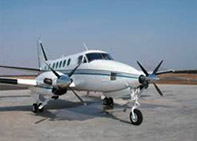In the present-day environment, where the aviation industry’s problems seem to be never-ending and the fear of accidents, plane hijack and terrorist attacks etc., it has become mandatory for both the domestic & internationally operating airlines to become fool-proof.
Technology innovation is one such area, where Thales UK and Intellect have begun a venture to recognise and try out the latest technologies led by the Office for Security and Counter-Terrorism within the Home Office.
For this, Thales UK, a global technology leader for the defence, security, aerospace and transport markets will be functioning in close association with aviation and security experts from the Olive Group, Human Recognition Systems, the Global Security Challenge, the Smith Institute, the University of Cambridge and Manchester and Birmingham airports.
It is also expected that quite a few trade and industry organisations like SITC- the Security Innovation and Technology Consortium, RISC- the UK Security and Resilience Industry Suppliers’ Community, ADS- the Aerospace Defence Security Group & NS&RC- the National Security & Resilience Consortium will be supporting the project.
This actively designed project commenced by Thales UK is recognised as the instinct-TD2, i.e. technology Demonstrator 2, through which an attempt is assumed to find out and test the continually evolving safety technologies.
It is believed that testing and examination will be carried out using a blend of live material surroundings like the UK airports and artificial environments. Only the successful assessments will be validated.
Though, it is understood that the change brought by this means may not be immediate. Therefore the awareness & competence expected to be delivered through this project will take its due course of time to be adopted by the airports, airlines, security authorities and companies.
To aid this project, the search for a whole-hearted involvement and contribution from people, groups, travel companies or any academic institution providing training for the aviation industry, despite its location & size is a welcoming gesture. It will undoubtedly bring together the technology, innovation & expertise related to the aviation sector from all other areas, helping it to improve consequently.
Around 20 to 30 submissions are supposed to take part where the closing date for submissions is 21st August 2010. These will then be displayed to the Government, aviation industry and security experts. This whole process will go on almost until December this year, where a final report, together with detailed analysis of the trial results and prospective execution of successful products, etc will be presented to the UK Government’s INSTINCT programme, just around the end of January next year.
With this, it could be confidently assumed that the solutions and ideas put forward by participants could boost the aviation security sector in phases like air travel process, planning and booking a journey or tour, boarding an aircraft, etc. where the passenger’s experience will be enhanced, hopefully not affecting the airport revenues in the future.
Some officially announced benefits to booming supporters are stated below:
- A sharing cash prize from a prize fund of £50,000 provided by Thales
- The chance to test their technology, solution or idea in a real environment that they wouldn’t usually be able to access
- Achieving helpful information on the aviation security surroundings and the use of their technology within this market
- Access to aviation and industry experts to help them to test, reveal and market their expertise in the most probable manner
- Right to use to a broad range of prospective customers and end-users
- Training and support in the improvement of their technology, solution or idea into a saleable product and business planning
- Monetary support to offset reasonable costs related to taking part in the trials, subject to status
- Shield of intellectual property
- Assistance and guidance throughout the project






